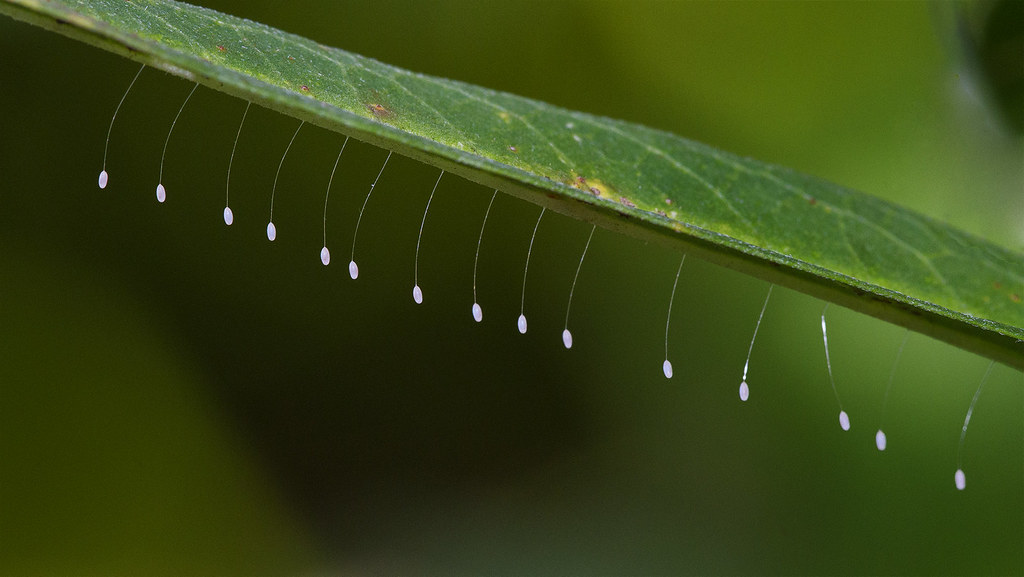- cross-posted to:
- earth@hexbear.net
- cross-posted to:
- earth@hexbear.net
Several species of green lacewings commonly are found on trees and shrubs. The adult stage is a pale green insect with large, clear, highly-veined wings that are held over the body when at rest. They are delicate and very attractive insects that primarily feed on nectar. The females lay a distinctive stalked egg, approximately one half inch in height. They may be laid in small groups or singly on leaves of plants throughout the yard.
Lacewing larvae emerge from the egg in about a week. These larvae, sometimes called aphid lions, are voracious predators capable of feeding on small caterpillars and beetles as well as aphids and other insects. In general shape and size, lacewing larvae are superficially similar to lady beetle larvae. However, immature lacewings usually are light brown and have a large pair of viciously hooked jaws projecting from the front of the head. Whereas lady beetles often are limited to smaller insects such as aphids, the green lacewings are capable hunters that can easily kill insects larger than themselves. Several generations of lacewings occur during the summer, and a green-brown cold tolerant species can be found late into fall.
Source: (https://wiki.bugwood.org/HPIPM:Chrysopidae)
In agriculture, these insects are commonly used as biological pest control against aphid pests.
Bonus picture, this is how they lay their eggs:

